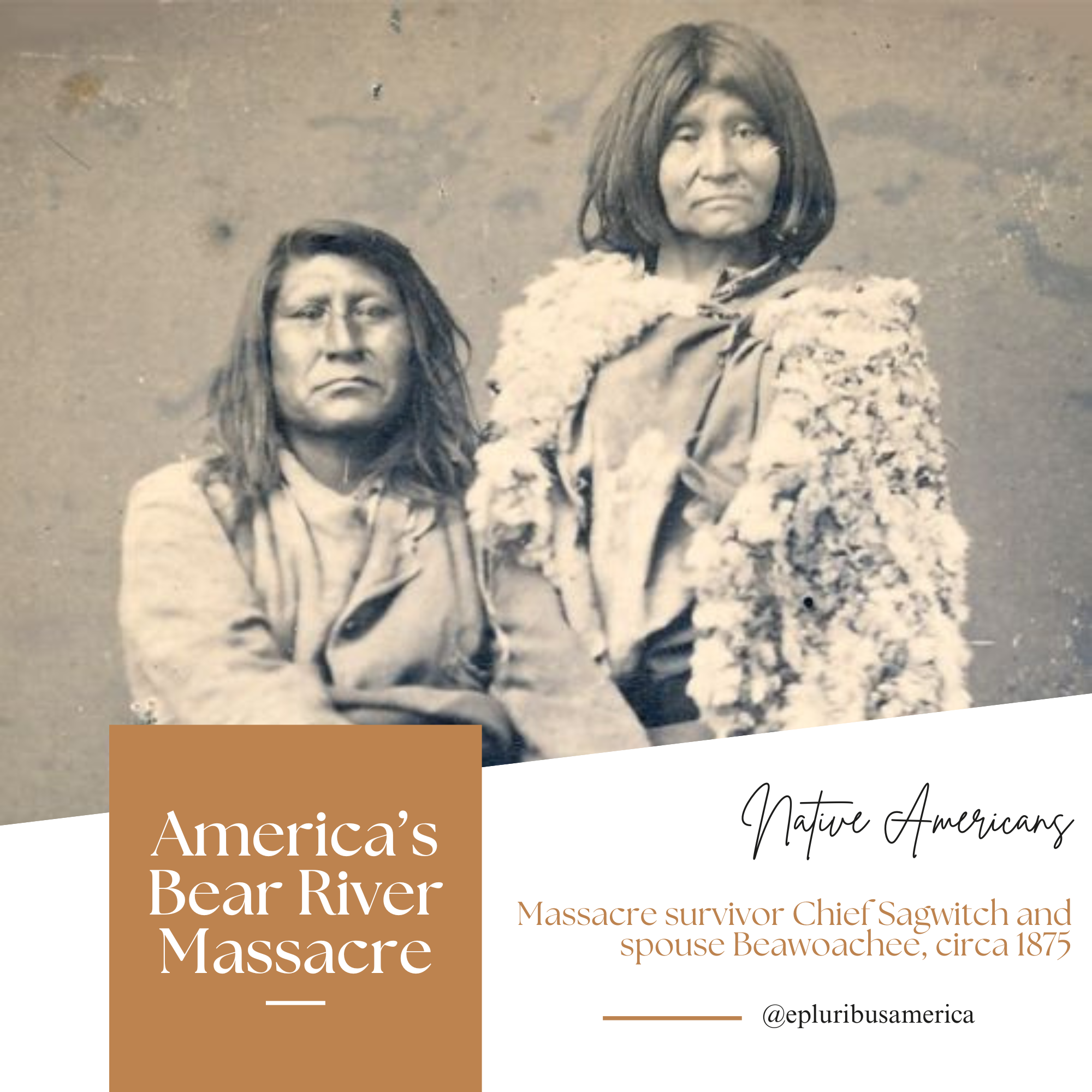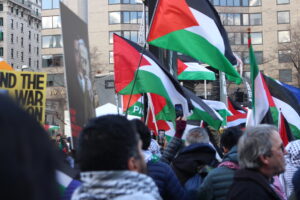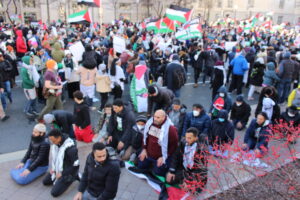A recent report issued by the UN Independent International Commission of Inquiry on the Occupied Palestinian Territory, including East Jerusalem, and Israel, has raised serious concerns about the treatment of Palestinians. The report, released on March 13, 2025, alleges that Israel has increasingly employed sexual, reproductive, and other forms of gender-based violence against Palestinians as part of a broader effort to undermine their right to self-determination.

Need to Know:
- The UN report documents a range of violations against Palestinian women, men, girls, and boys since October 7, 2023.
- The Commission’s findings suggest that sexual and gender-based violence is being used as a strategy of war by Israel.
- Specific acts of violence reported include forced public stripping, sexual harassment, sexual assault, and violence to genitals.
- The report also highlights the destruction of sexual and reproductive healthcare facilities in Gaza and the denial of humanitarian assistance, which has led to deaths from pregnancy complications.
- The Commission found that these acts amount to war crimes, crimes against humanity, and even genocidal acts.
- The report emphasizes a climate of impunity regarding these crimes and calls for accountability through the International Criminal Court and national courts.

Key Takeaways:
- The findings in the UN report are extremely serious and warrant further investigation.
- The report highlights the devastating impact of conflict on vulnerable populations, particularly women and children.
- The destruction of healthcare infrastructure and the denial of essential medical supplies have severe consequences for reproductive health and overall well-being.
- Accountability for alleged human rights violations is crucial for upholding the rule of law and ensuring justice for victims.

Implications for America and American Culture:
The findings in this report can have several implications for America and American culture, particularly regarding its role in the Israel-Gaza conflict:
- Public Opinion and Political Discourse: The report’s findings may influence public opinion in the United States regarding U.S. foreign policy towards Israel. It could fuel debates about the level of support and aid provided to Israel and raise questions about accountability for human rights violations.
- Activism and Advocacy: Human rights organizations and activist groups in the U.S. may use the report to advocate for policy changes, such as conditioning aid to Israel on human rights improvements or supporting investigations by international bodies.
- Cultural Narratives: The report could challenge existing narratives about the Israeli-Palestinian conflict within American culture, prompting discussions and re-evaluations of historical and political contexts.
- Role in International Relations: As a major global power with a close relationship with Israel, the U.S. may face increased pressure to address the allegations in the report and take action to promote accountability and human rights.
- Domestic Polarization: The Israeli genocide of Palestinians is a highly polarizing issue in the U.S., and the report’s findings could further exacerbate divisions and intensify political debates.

Although the report’s allegations are contested, thanks to Israel Occupation Forces (IOF) posting their war crimes and crimes against humanity on social media and independent journalism the world continues to bear witness to these atrocities. The seriousness of the UN report warrants attention, accountability and discussion, both within the international community and within the United States.
The Commission’s detailed report can be found here. The Commission’s findings on sexual and gender-based violence committed by the military wing of Hamas and other Palestinian armed groups on 7 October 2023 can be found here.
Background: The UN Human Rights Council mandated the Commission on 27 May 2021 to “investigate, in the Occupied Palestinian Territory, including East Jerusalem, and in Israel, all alleged violations of international humanitarian law and all alleged violations and abuses of international human rights law leading up to and since 13 April 2021.” Resolution A/HRC/RES/S-30/1 further requested the Commission of inquiry to “investigate all underlying root causes of recurrent tensions, instability and protraction of conflict, including systematic discrimination and repression based on national, ethnic, racial or religious identity.” The Commission of Inquiry was mandated to report to the Human Rights Council and the General Assembly annually commencing from June 2022 and September 2022, respectively.
More information on the work of the United Nations Independent International Commission of Inquiry on the Occupied Palestinian Territory, including East Jerusalem, and Israel, can be found here.
For more information and media requests, please contact: Todd Pitman, Media Adviser for the Human Rights Council’s Investigative Missions, at todd.pitman@un.org, Cell: +41 76 691 1761, or Pascal Sim, Human Rights Council Media Officer, at simp@un.org.





 Implications:
Implications:





 To contribute to Rehmah Global Relief’s efforts and support families in Gaza, please consider donating. By showing our humanity and offering our support, we can help change their sadness into hope.
To contribute to Rehmah Global Relief’s efforts and support families in Gaza, please consider donating. By showing our humanity and offering our support, we can help change their sadness into hope.

















 Freedom Plaza overflowed onto Pennsylvania Avenue with marchers chanting the popular “from the river to the sea, Palestine will be free,” as they waved a sea of flags in support of the Palestinian people who remain under siege.
Freedom Plaza overflowed onto Pennsylvania Avenue with marchers chanting the popular “from the river to the sea, Palestine will be free,” as they waved a sea of flags in support of the Palestinian people who remain under siege.